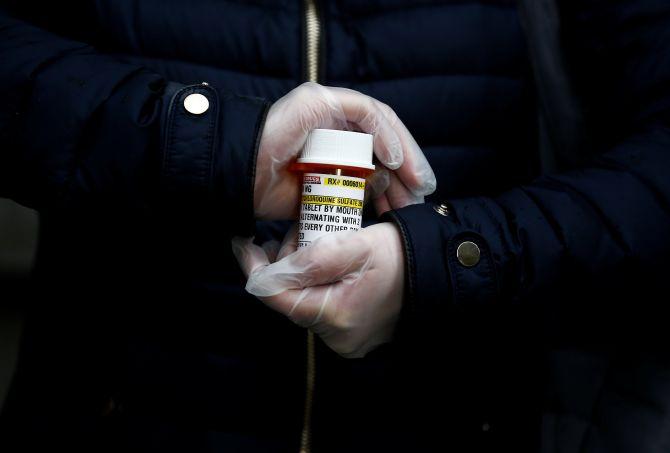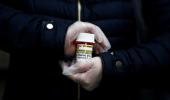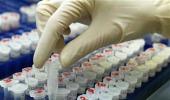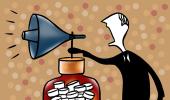As countries around the world explore the potential of hydroxychloroquine to treat COVID-19 patients, several experts have sounded a note of warning to say it is not a wonder drug and may even be fatal in some cases.

While frantic efforts are underway to develop a vaccine and doctors all over try and control the spread of the disease for which there is yet no cure, hydroxychloroquine, or HCQ, has emerged as a prime focus area of treatment.
This reliance on HCQ must immediately stop, the experts say, adding their voices to the growing debate to stress that there is no scientific evidence to prove that it is beneficial in treating COVID-19.
“It is only on anecdotal evidence that doctors are using HCQ along with other antiviral medication (used in HIV and other viral infections) as empiric therapy to treat COVID-19 patients as there is no definite treatment available yet,” said M C Misra, former director of the All India Institute of Medical Sciences in Delhi and one of India's top surgeons.
“However, there have been reports of some patients developing cardiac arrhythmias due to hydroxychloroquine which can cause sudden cardiac death,” Misra said.
Yudhyavir Singh, a core member of AIIMS' COVID-19 team deployed at the hospital's trauma centre, agreed.
“Globally, some deaths have been reported due to the administration of HCQ alone and along with azithromycin as well. HCQ blocks the potassium channel and potentially prolongs the QTc (heartbeat) with consequences of sudden cardiac arrest death and various arrhythmias. This has also been documented in prominent studies,” he explained.
The assistant professor of anaesthesia at AIIMS said there are contradictory reports on HCQ usage for treating COVID-19.
As the pandemic spreads and the urgency for effective treatment of COVID-19 mounts, several countries, including the US, have started relying heavily on HCQ, majorly used in the treatment of malaria and rheumatoid-arthritis.
India has become the biggest supplier of the drug and has fulfilled large orders from countries such as the US, UAE and UK.
With US President Donald Trump touting the anti-malaria drug as a definite cure for COVID-19, his administration has stockpiled millions of doses of HCQ despite the US Food and Drug Administration (FDA) issuing a safety communication regarding the known side effects of the drug.
The FDA said HCQ has been given ‘Emergency Use Authorisation' for the treatment of patients who have tested positive for coronavirus but its side effects include serious and potentially life-threatening heart rhythm problems.
In India too, HCQ is being used by many hospitals to treat COVID-19 patients though there is no scientific proof of its benefit for the disease.
“We are using HCQ among other drugs but ignoring its extreme hazardous side effects,” Misra said.
In the first week of April, when coronavirus cases in India started to surge, a doctor in Assam who was put on a high dose of HCQ after he showed COVID-19 symptoms died of a cardiac arrest, he said.
Citing a research from France in which one half of COVID-19 patients was administered hydroxychloroquine while the other half was not, Misra said the recovery and outcomes of the two groups were same.
“Another study submitted in The New England Journal of Medicine on April 4, 2020 concluded that HCQ administration to the hospitalised SARS-CoV- 2 positive population was associated with an increased need for escalation of respiratory support,” he said, adding that hydroxychloroquine was not a “wonder drug”.
COVID-19, which broke out first in China's Hubei province, has caused havoc across the world, claiming the lives of more than 2.5 lakh people and infected over 36 lakh.
Ashraf Ganie, professor of endocrinology at Srinagar's Sher-I-Kashmir Institute of Medical Sciences, described as brazen the manner in which HCQ was being projected as a cure for treating coronavirus.
“HCQ can have serious cardiac side effects and cannot be used without prior evaluation,” Ganie told PTI.
"There is no quality scientific evidence available, which can prove the efficacy of the drug in prevention or cure of COVID 19,” added D K Mangal, director of the Centre for Health Systems and Policy Research in Jaipur's IIHMR University.
“It should be used with precautions for patients with severe heart disease and require continuous monitoring of QT interval. HCQ is known for its cadio-toxicity. Hence it should be used in health care settings only,” he said.
Rajesh Kumar, a doctor of Internal Medicine at Gurgaon's Paras Hospital, said HCQ can also cause hypoglycemia in diabetes patients.











 © 2025
© 2025